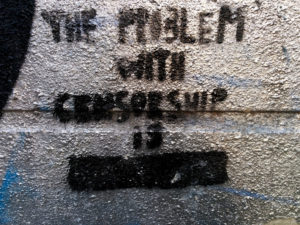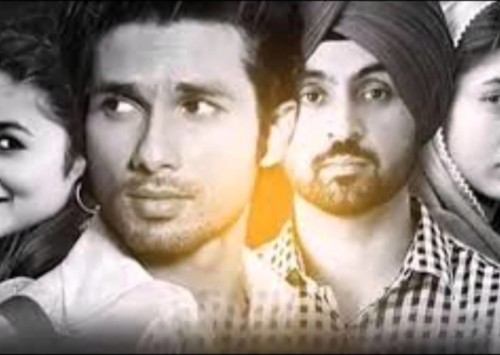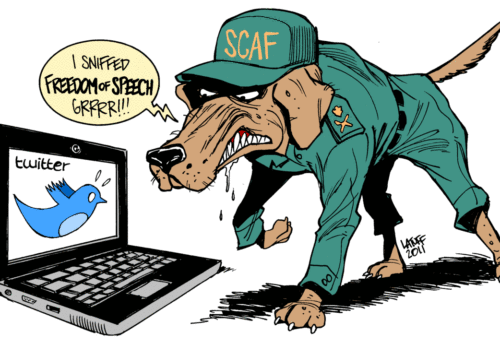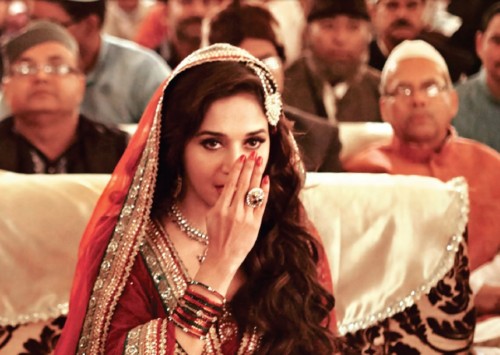Policing of Plays: Curtain goes down on Censorship?
An artist’s struggle with censorship is a long and seemingly unending one. In 2016, a number of states in the country are still practicing the archaic Dramatic Performances Act (DPA) of 1876. Preceded by the Madras High Court ruling, the Maharashtra government informed the Bombay High Court that the pre-censorship of plays is no longer mandatory. The struggle against censorship is however more social than political, thespians state.
India’s censored seditious heritage

Censorship during the First World War
Back in 1872 on November 19, a private residence in Calcutta saw the first public performance of the National Theatre. Dinabandhu Mitra’s path-changing play Nil Darpan, literally Blue Mirror, discussed in detail the vices of colonialism by citing the plight of the Indigo farmers in India. With its outright demonization of the British rule, it attracted the wrath of the police. The Indian Mirror of March, 1876 stated, “A Gazette of India Extra-ordinary was issued last evening containing an Ordinance to empower the Government of Bengal to prohibit certain dramatic performances, which are scandalous, defamatory, seditious, obscene, or otherwise prejudicial to the public interest.” A short glimpse of history would throw light on how the law managed to thrive even post-independence; in 1953, Malayalam director Thoppil Bhasi’s play Ningalenne Communistakki or ‘You Made Me a Communist’ was banned under the DPA. In 1993, even as the country’s Code of Compilation of Unrepealed Central Acts declared the DPA as an ‘obsolete’ law, there is a myriad of examples of pre-censorship under the pretext of ‘public order, decency or morality’. Maharashtra Government’s banning of the Marathi play Me Nathuram Godse Boltoy or ‘This is Nathuram Godse Speaking’ or even the 2004 ban of Mahabanoo Mody-Kotwal’s adaptation of Eve Ensler’s The Vagina Monologues in Chennai are all examples of the State’s interference in theatre as a performing art.
Outmoded practice in the 20th century
Ranjit Udeshi, a book store owner in Mumbai had a sting operation conducted on him by the police. He was eventually dragged to the Supreme Court for selling D.H Lawrence’s Lady Chatterley’s Lover where he argued for his fundamental right to speech and expression. Mohammad Hidayatullah, the eleventh Chief Justice of India, putting it crisply, merely dismissed the argument by stating that the freedom of speech extended to political or social conditions thus excluding the case from the realm of protection under the Indian legal framework. The winning of the obscenity trial by Penguin Books in the United Kingdom in 1960 over the same book was not given any relevance in this case. A feisty Amol Palekar, veteran Indian actor and director, had lodged a public interest litigation against the pre-censorship of plays as a part of the provisions of the Bombay Police Act of 1951. The Maharashtra government has recently brought to the notice of the Bombay High Court that as per a circular received in March, plays and tamashas are to be excluded from pre-censorship.
Thespian Speak
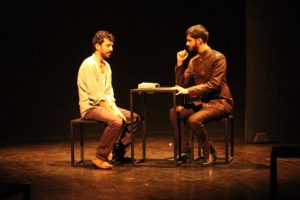
A still from the play ‘Under the Chestnut Tree’ which had to get an A-certification for the use of the word ‘homosexual’
On asking Abhishek Saha, actor-director based in Mumbai, about the public reaction to censorship, he said, “Public reaction to censorship comes and goes really depending on who is supporting what and at what time. For example, with the Udta Punjab debate, which was a film I loved, the uproar it garnered seemed to have a great impact on the viewership of the film. It was more of a fashionable debate for a social media phase.” The translation of the riddance of the pre-censorship mandate in practice remains to be adjudged. “Censorship in the country has always confounded me. I am alright with being sensitive to content depending on who is watching and where, but that’s usually solved with a disclaimer. I would like to see art being left out of politics and letting people voice their opinions on a platform like theatre without having to worry about the consequences from practitioners of violence,” said Saha. Soham Majumdar, founder of national performing arts company Mad About Drama, stated, “There was an incident in a well-known university in India where we had to change the word ‘blasphemy’ as it hurt the religious sentiment of a particular religion. Even the said-authorities who determine this are mostly government officials instead of experienced practitioners from the theatre community itself.”
It is interesting to reminisce the fact that Aristrophanes’ Lysistrata was banned for being an anti-war play, Oscar Wilde’s Salome was banned for being ‘vulgar’, Henrik Ibsen’s Ghosts was banned on religious grounds for talking about incest and sexually transmitted diseases, Tennessee Williams’ A Streetcar Named Desire was admonished for discussing the rape and descent into insanity of a woman. The struggle against censorship depends to a large extent on the prevalent beliefs in the society. The fault in the speech seemingly will still be diagnosed as the fight against censorship takes its baby steps in India.


